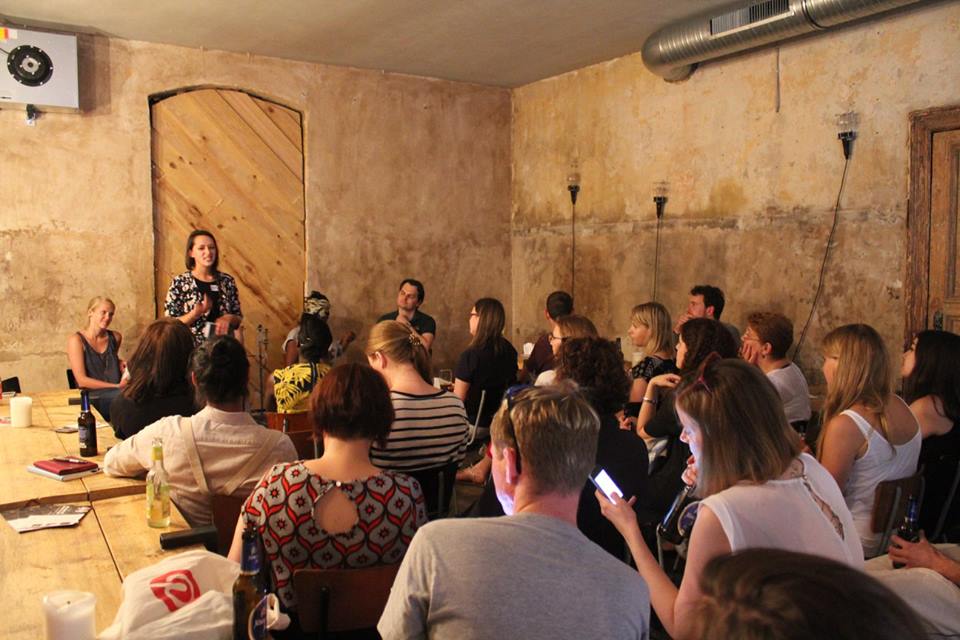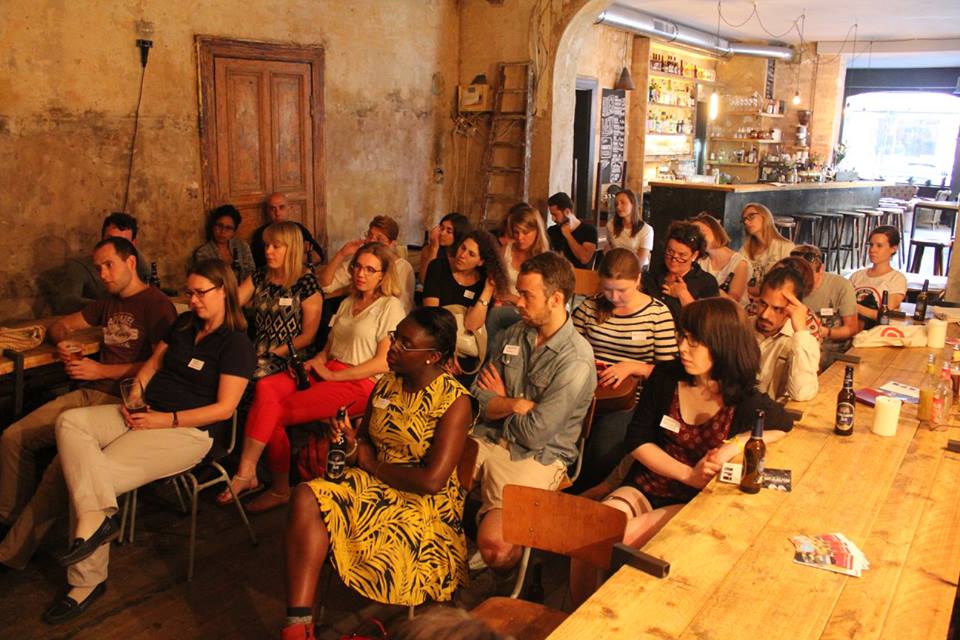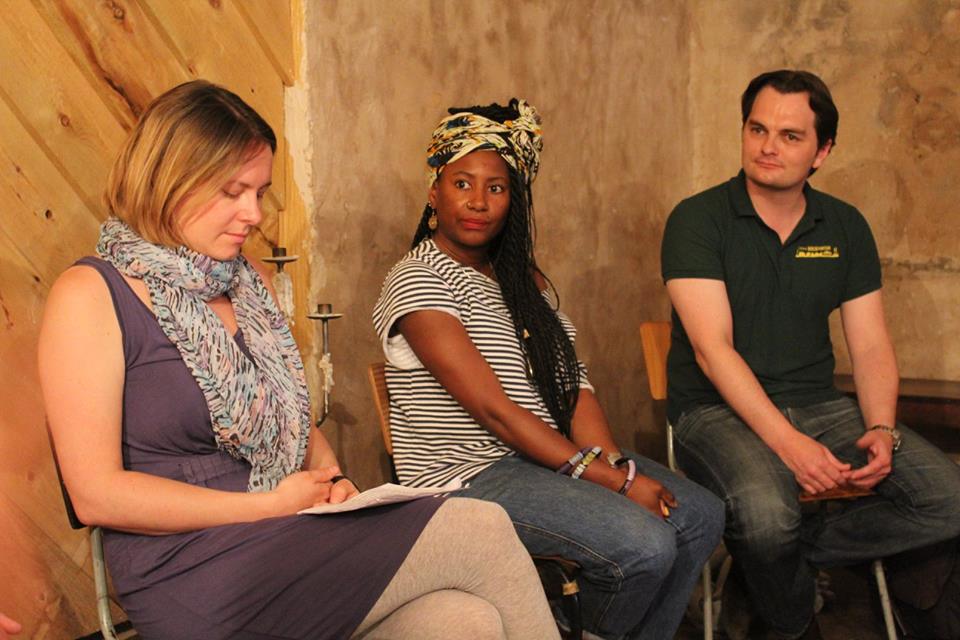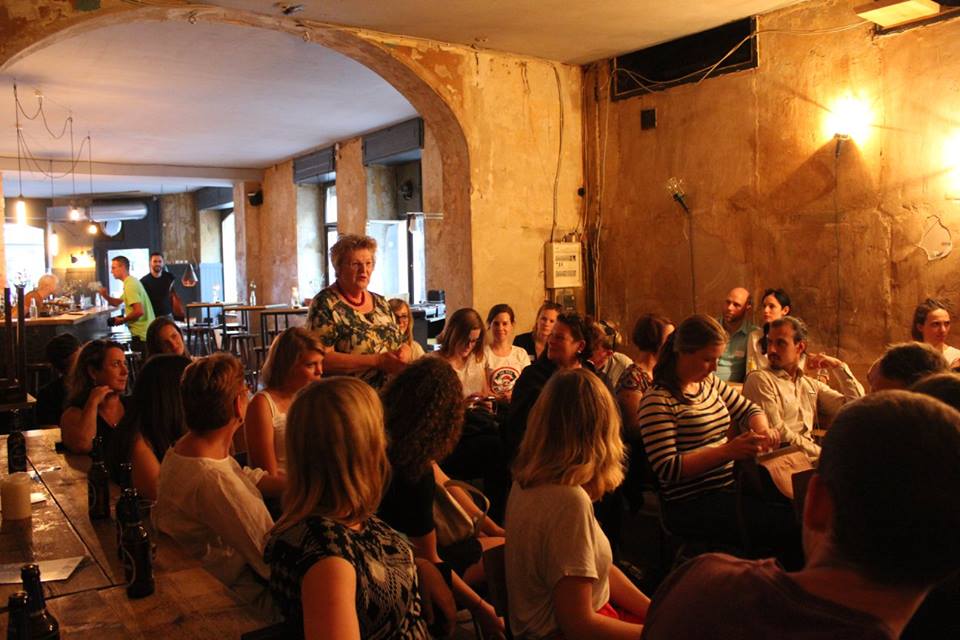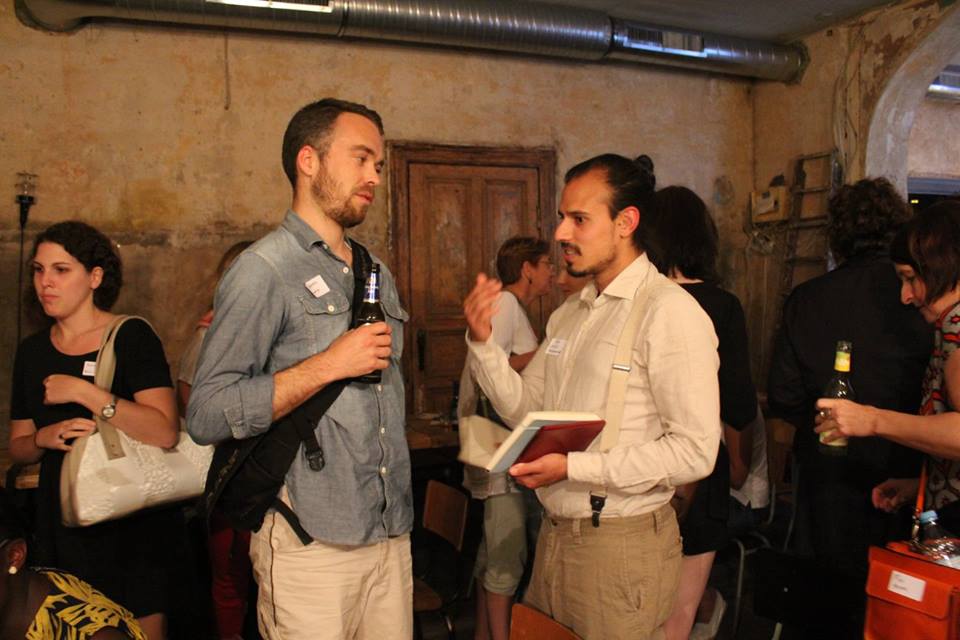Going Local Panel at Travel Massive Berlin
This guest post is part of our #TMFutureTourism discussion for the month of September. Travel Massive marks World Tourism Day with a month-long discussion on the future of tourism. Share, connect and engage with us on social using #TMFutureTourism.
Tourists are looking for more. More authenticity during their holiday trips. More local experience. More local life and hidden spots off the typical tourist paths.
Therefore the development of “going local” within city destinations is increasing and more off path neighborhoods are getting noticed.
The issue has been present within the tourism industry for awhile, but latest developments in Barcelona put a spotlight on the topic again. In Berlin we decided to explore the challenges and solutions of “going local” and the future of tourism with an open panel discussion.
The Panel:
Claudia Sult from visitBerlin, Maggie Coker from Neukölln Schatzkarte, Bastian Schwithal the founder of Berlin Food Tour and Natalie Holmes from Context Travel shared their knowledge and experiences at the recent Travel Massive event in Berlin including steps to take and ways to deal with this growing challenge in tourism.
Questions:
Three questions arise in the challenge of going local:
- How can tourist numbers in cities be regulated?
- How do you find a balance between tourists discovering different city areas without disturbing the local inhabitants and their daily lives?
- How can different stakeholders and groups benefit from a development like this?
Outcomes
The main outcome was that tourist numbers and carrying capacity should be determined regarding sizes of tourist groups. As the panelists received concerns by locals that their (still hidden) spots might be exposed to tourists too much, information material and maps, like Neukölln Schatzkarte , should be printed in limited numbers and distributed at specific spots.
It is also important to put a focus on local suppliers and businesses to strengthen local structures and to support alternative and independent shop and company owners. They are not only creating this specific character of Berlin, but are also representing creativity and individualism besides commercial stores and companies. With the support of local structures local inhabitants can benefit from tourism and see the positive effects tourist numbers and their spending can have on a neighborhood.
The most important point everyone from the panel and audience agreed on, was that effective communication with involved and interested people is the key to finding solutions everyone can be satisfied with. Meetings with responsible people from the local government, inhabitants, tourist guides and tour operators, shop and accommodation owners can provide a platform for positive regulations and planning methods. If different interest groups and stakeholders are working effectively on solutions together crucial changes in city areas can be prevented or in turn, help convert a challenge into a positive effect.
Join the conversation and follow #TMFutureTourism on the future of tourism for the month of September.
 Lydia Band is a Master’s Student of Sustainable Tourism Management currently living in Berlin, Germany. You can follow Lydia on Travel Massive. For upcoming event notifications, join the Berlin chapter page.
Lydia Band is a Master’s Student of Sustainable Tourism Management currently living in Berlin, Germany. You can follow Lydia on Travel Massive. For upcoming event notifications, join the Berlin chapter page.
👋 This article is archived. Take a look at our new website.
